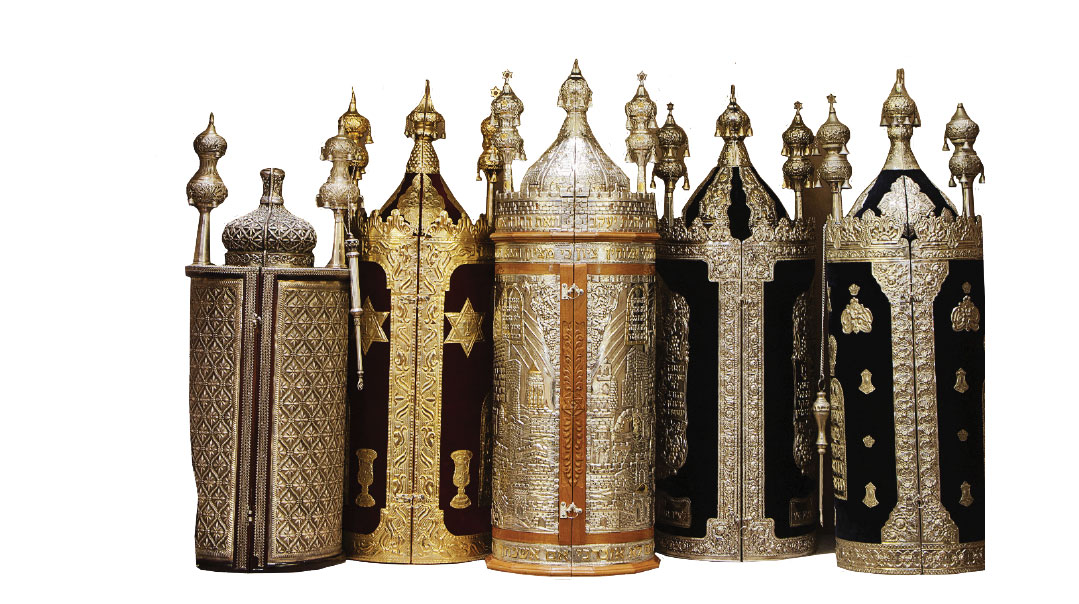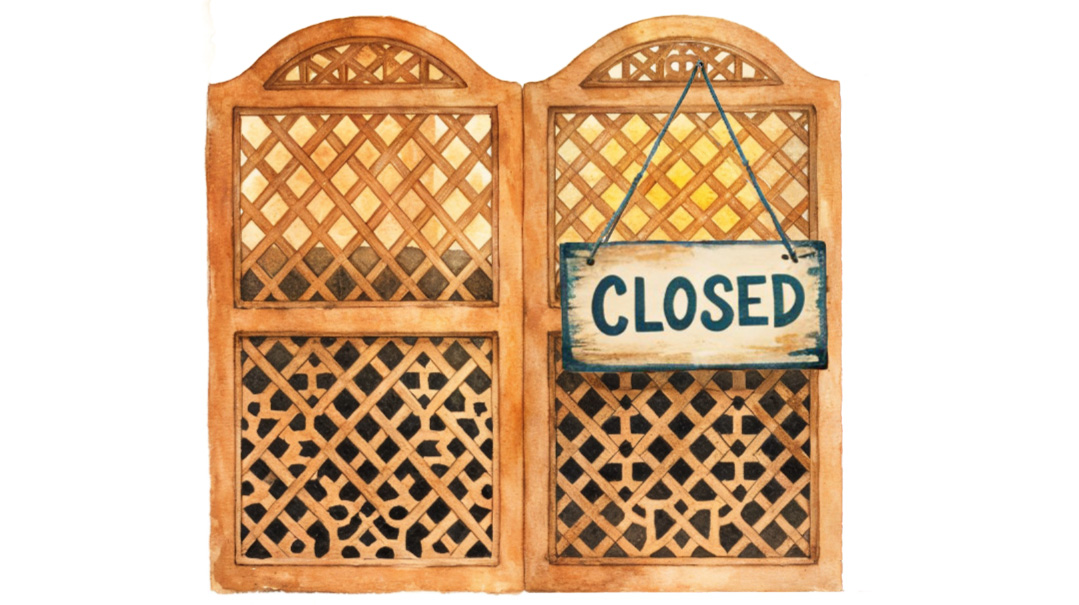Scroll 43
| October 10, 2019Who knows what she has sacrificed, this small, lone woman who embraces the Torah with strong skinny arms?

We stay rooted in our coveted spot. We’ve been here, perched on a chair, for more than an hour, although the festivities haven’t yet begun. We’d come to Jerusalem for this.
Hakafos at the Kosel.
Around us, others jostle for space. Promise in the air. Wait and see, watch it happen.
And then, the scrolls come out, one hundred, more, carried by the crowd. A swirling joy moves like a tangible thing along the Kosel floor, to the rhythm of the bouncing Torah scrolls — tens of them — as stunningly diverse as the men that dance with them.
Velvet-bound scrolls in scarlet, cobalt blue, faded black. Bright white satin. Wood. Old, shiny, huge, intricate. They pass hands. Father to son to stranger. Brother to brother. The moon shines on the hands, scrolls, faces tilted up to the Wall. A nation dancing, whole, for this slice of time, alongside a broken wall. Because we will yet see her in her glory…
The spell dissipates. My sister and I are standing shoulder to shoulder. And then we aren’t. A little woman resolutely wedges herself between us, craning to catch a glimpse of the dancing. She throws candies from a black and gold shopping bag and blows kisses fervently at a Torah that’s within reach. She’s sweet, but I’m feeling claustrophobic in my carefully secured spot. And wobbly. Can this chair hold up three?
I catch sight of my brother on the other side. He’s holding a Torah scroll. I beckon to him. He wends his way through, and the women nearby, these passionate women of Israel, bless and kiss the Torah. My brother retreats into the crowd. He’s 16 and somewhat shy.
The woman standing between my sister and I says to us in a mixture of Hebrew and broken English, “Tell him to bring it back to the wall!”
My brother shakes his head, but the old woman squints and peers and motions. He comes back. She gestures to him to hold up the scroll. She looks at it. “No!” and then explains with some urgency, “My father, may he rest in peace, donated a Torah to the Kosel. One of those scrolls is his. Do you think you can find it?”
Through the language barrier, we tease out details of the Torah: It’s medium-sized — a little bigger than this one, but not the biggest of scrolls. It has a number — 43, wooden handles — and its Sephardic-styled case is painted with soft colors. The name of her father is inscribed underneath the number. “My father was a Kohein,” she tells us proudly.
And so, they set out, my two brothers, in search of the scroll. The woman leans over, following them with her eyes, and when they disappear into the crowds, she starts to murmur.
They bring one near the mechitzah. “Is it this size?” Another, “Is the mantel painted like this one? Where are the numbers?” She murmurs bits of Tehillim all the while, eyes tightly shut.
And then they have it. They pick their way through the masses, holding the Torah aloft. They get to the mechitzah, and the woman’s eyes fly open.
She looks at it, traces the paint on the wooden casing, strokes her father’s name. Then she grasps the heavy Torah in her frail arms. I hear her sobbing. Salt on wood. Like a korban. Who knows what she has sacrificed, this small, lone woman who embraces the Torah with strong skinny arms?
She looks up finally, misty-eyed. “It’s been such a long time,” she tells us. “I don’t have anyone in the men’s section, and the sifrei Torah are usually kept securely shut away. Only on Simchas Torah do they bring out all the scrolls.”
(Excerpted from Family First, Issue 663)
Oops! We could not locate your form.







